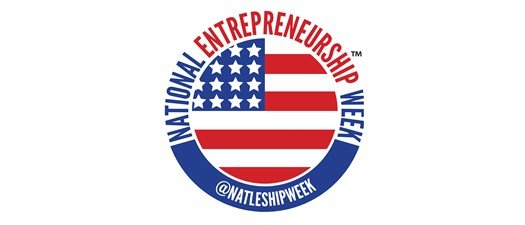Crafting the Perfect Business Plan
Every entrepreneur knows that a business plan is crucial, but the type of plan can make a difference. Learn about the business model canvas, traditional plans, one-page plans, and investor-focused plans to determine the best fit for your venture.
In the dynamic world of entrepreneurship, the foundation of any successful venture is a well-structured business plan. But with various types of plans available, choosing the right one can be a game-changer. Understanding the nuances of different business plans can help entrepreneurs, small business owners, and potential investors navigate their paths to success.
The Business Model Canvas: A Visual Approach
The business model canvas is a strategic management tool that allows entrepreneurs to visualize and describe their business model. Created by Alexander Osterwalder and Yves Pigneur, this one-page tool helps simplify a business's complex structure by breaking it down into nine essential components: customer segments, value propositions, channels, customer relationships, revenue streams, key resources, key activities, key partnerships, and cost structure.
Unlike traditional business plans, the business model canvas is highly visual and interactive, making it easier to update and adapt. This flexibility is particularly beneficial for startups and small businesses that need to pivot quickly in response to market changes. By using the business model canvas, entrepreneurs can map out their business ideas and identify potential weaknesses or gaps early on, which can save time and resources.
Traditional Business Plans: Comprehensive and Detailed
For those seeking a more comprehensive approach, the traditional business plan remains a staple in the entrepreneurial toolkit. This type of plan is detailed and thorough, covering all aspects of the business, from market analysis to financial projections. It typically includes an executive summary, company description, market analysis, organization and management structure, product line or services, marketing and sales strategies, funding requests, and financial projections.
Traditional business plans are essential for businesses seeking funding from banks or investors. They provide a detailed roadmap of the company’s vision and strategy. The depth and detail of these plans demonstrate to potential investors that the entrepreneur has thoroughly researched and planned for the business’s success.
One-Page Business Plans: Simplicity and Clarity
In contrast to the traditional business plan, the one-page business plan focuses on simplicity and clarity. This type of plan condenses the essential elements of a business plan into a single page, making it easier for entrepreneurs to communicate their vision quickly and efficiently. A one-page business plan typically includes the business’s mission, objectives, strategies, and action plans.
The one-page business plan's simplicity makes it an excellent tool for startups and small businesses that need to articulate their business model concisely. It’s also useful for internal use, providing a clear and straightforward reference for the business team. However, it may not provide enough detail for external stakeholders, such as investors or lenders.
Business Plans for Investors or Partners: Tailored for Impact
When seeking investment or partnerships, a specialized business plan tailored to the needs of investors or partners is essential. These plans focus on demonstrating the potential for return on investment and the strategic fit of the partnership. Key components often include market opportunity, competitive analysis, detailed financial projections, and a clear exit strategy.
Investors and partners are primarily interested in the business's financial viability and scalability. Therefore, this type of plan emphasizes financial metrics, market potential, and the unique value proposition of the business. By addressing investors' specific concerns and interests, entrepreneurs can increase their chances of securing the necessary funding and support.
Choosing the Right Plan for Your Business
Selecting the right type of business plan depends on various factors, including the stage of your business, your audience, and your specific goals. For instance, startups in the ideation phase might benefit from the flexibility of the business model canvas, while established businesses seeking funding might opt for a traditional business plan.
When choosing a business plan, consider your audience. A detailed plan with financial projections and market analysis is crucial if you're pitching to investors. For internal purposes or initial brainstorming, a one-page plan or business model canvas might be more appropriate.
Emerge and Rise: Empowering Your Business Journey
At Emerge and Rise™, we understand the challenges and opportunities that come with crafting the perfect business plan. Our programs are designed to support entrepreneurs at every stage of their journey, providing the tools and resources needed to develop robust and effective business plans. Whether you’re just starting or looking to expand, our expert advisors are here to help you succeed.
Ready to take your business to the next level? Contact Emerge and Rise™ today to discover how our expert advisors can help you craft a winning business plan and unlock new opportunities for growth and success.
Your donations make our work possible.
When you give to Impact, you provide resources that transform the community.





